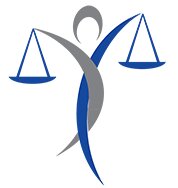Best Property Damage Lawyers in Trinidad and Tobago
Share your needs with us, get contacted by law firms.
Free. Takes 2 min.
Or refine your search by selecting a city:
List of the best lawyers in Trinidad and Tobago
About Property Damage Law in Trinidad and Tobago
Property damage law in Trinidad and Tobago encompasses legal rules and regulations that govern the protection of property rights and the remedies available when those rights are infringed. This can include damage arising from natural disasters, vandalism, negligence, and other circumstances. The framework aims to ensure property owners can seek compensation or repairs for wrongful damages. Legal proceedings in this area often involve compensation claims, insurance disputes, and, in certain cases, criminal prosecution.
Why You May Need a Lawyer
Seeking legal assistance in property damage matters is crucial for navigating complex legal scenarios and ensuring a fair outcome. Common situations where legal help may be required include:
- Disputes with insurance companies over coverage and compensation.
- Determining liability in cases where multiple parties are involved.
- Legal challenges related to property damage caused by natural disasters.
- Negotiating settlements with responsible parties or their insurers.
- Representing your interests in court if a settlement cannot be reached.
Local Laws Overview
In Trinidad and Tobago, property damage laws are influenced by statutory provisions and case law. The key aspects include the Trespass Act, which handles unauthorized interference with property, and the Insurance Act, which governs the conduct of insurance claims and settlements. Moreover, specific environmental laws address liabilities related to environmental damage affecting property. Understanding these laws is essential for effectively handling any property damage related issues.
Frequently Asked Questions
What constitutes property damage under Trinidad and Tobago law?
Property damage refers to any harm that results in the loss of value, usability, or enjoyment of property, whether due to physical damage or deprivation of use.
What should I do immediately following property damage?
Take immediate steps to document the damage through photographs, contact relevant authorities if necessary, notify your insurance company, and obtain an independent assessment if required.
How long do I have to file a property damage claim?
The time limit for filing a claim can vary depending on the type of incident and insurance policy terms, but typically you should act promptly, usually within 6 months to a year.
Can I claim for emotional distress related to property damage?
In certain scenarios, you may be entitled to compensation for emotional distress, particularly if the property damage is significant and affects your quality of life.
Who is liable if a tree from a neighbor's yard falls and damages my property?
Your neighbor could be held responsible if it can be proven that they were negligent, such as ignoring a known hazard. Legal counsel can help establish liability.
Is it necessary to hire a lawyer for minor property damage claims?
While not always necessary, a lawyer can provide valuable guidance to ensure you understand your rights and receive fair compensation, especially if the other party disputes the claim.
What if the property damage claim exceeds my insurance coverage?
You might seek further compensation through litigation against the responsible party beyond what your insurance covers. Legal advice can clarify your options.
How does comparative negligence affect my claim?
If you’re found partially at fault for the damage, the compensation may be reduced in proportion to your degree of fault under comparative negligence rules.
What role does mediation play in resolving property damage disputes?
Mediation serves as an alternative to litigation to resolve disputes amicably, often providing a quicker, cost-effective resolution with the help of a neutral third-party mediator.
What are punitive damages, and can they be awarded in property damage cases?
Punitive damages are awarded to punish a defendant for particularly egregious behavior, though they are rare in property damage cases and usually require proof of willful misconduct.
Additional Resources
Seek guidance from these resources for further help in property damage cases:
- Trinidad and Tobago Insurance Association (TTIA)
- The Citizens Advice Bureau
- Legal Aid and Advisory Authority
- Consumer Affairs Division, Ministry of Trade and Industry
- T&T Chamber of Industry and Commerce
Next Steps
If you need legal assistance for a property damage issue, consider the following steps:
- Consult a lawyer specializing in property damage or insurance law.
- Gather all relevant documents and evidence related to the damage.
- Document communications with insurance companies or other parties involved.
- Seek out legal clinics or pro bono services if financial resources are limited.
- Ensure you understand any potential costs involved in legal proceedings.
Lawzana helps you find the best lawyers and law firms in Trinidad and Tobago through a curated and pre-screened list of qualified legal professionals. Our platform offers rankings and detailed profiles of attorneys and law firms, allowing you to compare based on practice areas, including Property Damage, experience, and client feedback.
Each profile includes a description of the firm's areas of practice, client reviews, team members and partners, year of establishment, spoken languages, office locations, contact information, social media presence, and any published articles or resources. Most firms on our platform speak English and are experienced in both local and international legal matters.
Get a quote from top-rated law firms in Trinidad and Tobago — quickly, securely, and without unnecessary hassle.
Disclaimer:
The information provided on this page is for general informational purposes only and does not constitute legal advice. While we strive to ensure the accuracy and relevance of the content, legal information may change over time, and interpretations of the law can vary. You should always consult with a qualified legal professional for advice specific to your situation.
We disclaim all liability for actions taken or not taken based on the content of this page. If you believe any information is incorrect or outdated, please contact us, and we will review and update it where appropriate.
Browse property damage law firms by city in Trinidad and Tobago
Refine your search by selecting a city.














